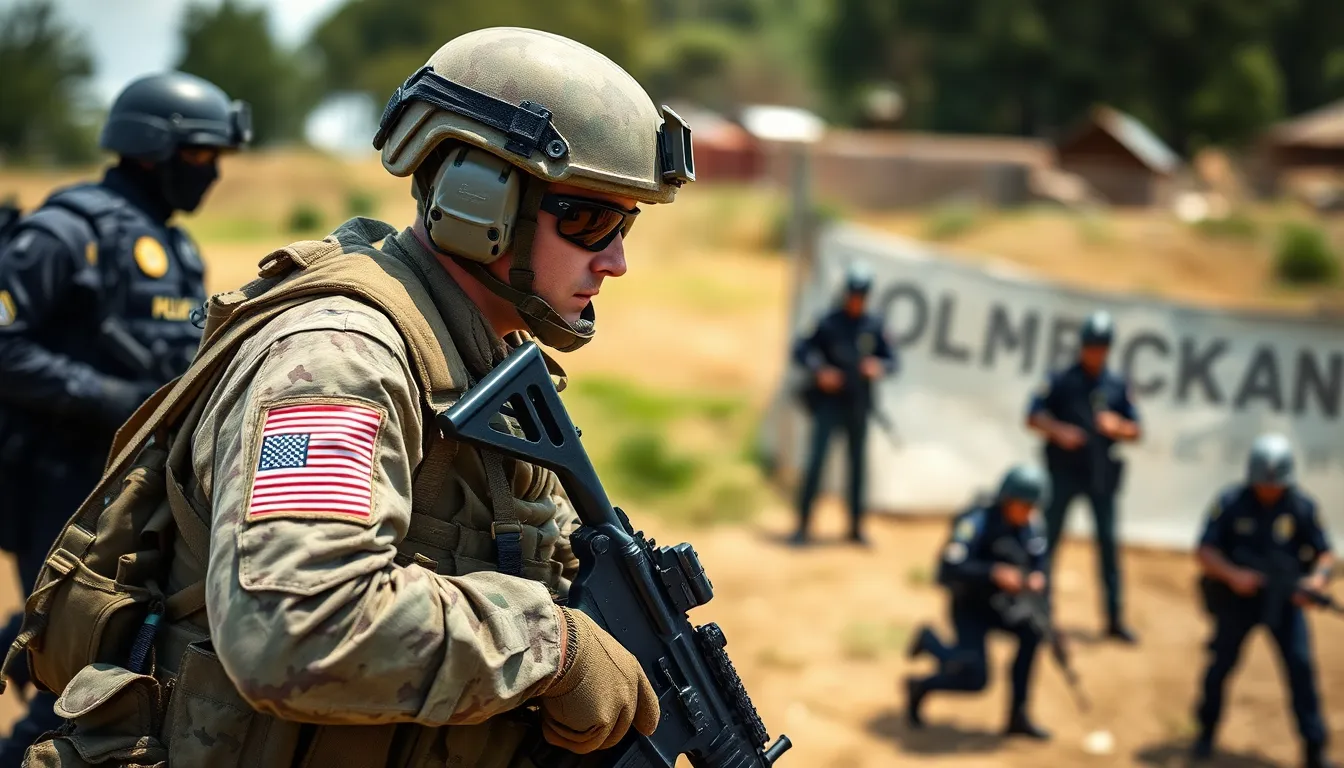Table of Contents
ToggleIn a world where politics and military might often collide, the Mexican Senate is stepping into the spotlight with a surprising twist: the involvement of U.S. Special Forces. Picture this: a room full of senators debating serious issues while a few elite soldiers stand by, ready to jump into action at a moment’s notice. It sounds like the plot of a blockbuster movie, but it’s becoming a reality that demands attention.
Overview of Mexican Senate and US Special Forces Relations
U.S. Special Forces maintain a military presence in Mexico, often collaborating on security initiatives. These operations primarily target organized crime and drug trafficking, addressing pressing regional concerns. Mexican senators discuss the implications of foreign military involvement in national security matters. Regular sessions often reveal tensions between sovereignty and assistance from foreign entities.
Implicitly, their involvement affects legislative decisions, prompting debates over defense funding and military collaboration agreements. Mexican lawmakers frequently express apprehension regarding the potential infringement on national sovereignty. During critical discussions, the role of U.S. forces becomes a focal point, bringing varied opinions into play.
Per recent statements, Senators advocate for increased transparency and oversight in operations involving U.S. troops. They highlight the necessity of collaboration while ensuring Mexican interests are prioritized. The relationship hinges on mutual benefits and respect for sovereignty, compelling both parties to negotiate limits and operational guidelines.
Political dynamics within the Mexican Senate often reflect broader regional security strategies. Committees routinely assess the cooperation levels with the U.S. military, balancing domestic security needs with international pressure. Ongoing dialogues have produced agreements that facilitate joint training exercises and intelligence sharing.
As these relations evolve, they demonstrate the complexities of international cooperation in an era marked by heightened threats. Current happenings underscore the importance of revisiting these agreements regularly to adapt to changing circumstances. A future that blends military assistance with political oversight will likely emerge from these interactions.
Key Events Involving Mexican Senate and US Special Forces

The intersection of the Mexican Senate and U.S. Special Forces presents key developments in security collaborations. This relationship includes several significant efforts aimed at addressing national security challenges.
Major Collaborations
U.S. Special Forces collaborate with Mexican law enforcement to combat drug trafficking. These partnerships enhance intelligence sharing and operational training for local forces. Furthermore, joint military exercises occur regularly, fostering tactical cooperation. Senators play a crucial role in approving funding for these initiatives, balancing national security needs with public accountability. They demand regular updates on the effectiveness of U.S. engagements, ensuring alignment with Mexican interests.
Notable Incidents
Certain incidents underscore the complexities of this collaboration. In one noted instance, a training exercise with U.S. forces led to public outcry over perceived infringements on sovereignty. Mexican senators responded by calling for stricter controls over U.S. military presence. Another event occurred during a high-profile drug bust where operatives from both nations worked together, highlighting the operational significance of these alliances. These incidents drive ongoing debates within the Senate, shaping future engagement strategies with U.S. military forces.
Implications of US Special Forces in Mexico
U.S. Special Forces’ involvement in Mexico raises essential concerns and considerations regarding security and sovereignty. Discussions among Mexican senators about this presence spotlight critical implications for the nation.
Impact on National Security
Enhanced security measures through U.S. military collaboration directly influence Mexico’s ability to combat organized crime. Forces work together to share intelligence, leading to more effective operations against drug trafficking organizations. While these partnerships bolster immediate security responses, they also risk dependence on foreign military support. Over time, reliance on U.S. operations may limit Mexico’s own military development and strategic independence. Senators emphasize the need to balance external assistance with strengthening local security forces. Legislative actions aim to ensure that U.S. involvement aligns with national security priorities.
Controversies and Criticism
Concerns about foreign military presence in Mexico often provoke intense debate among lawmakers. Critics argue that U.S. Special Forces’ involvement could undermine Mexican sovereignty and lead to perceptions of foreign dominance. Statements from various senators highlight fears of militarization in response to domestic issues. Scandals, such as unauthorized operations and public backlash following high-profile incidents, fuel resentment among citizens. These controversies create pressure for greater transparency and oversight. Mexican lawmakers continue to advocate for accountability, demanding clear operational guidelines that respect national autonomy in security matters.
Future Prospects for Cooperation
Future collaboration between U.S. Special Forces and the Mexican government hinges on careful negotiations and evolving geopolitical landscapes. Enhanced transparency in military operations becomes essential for maintaining public trust. Senators have begun discussing frameworks that prioritize Mexican sovereignty, emphasizing the need for limits on foreign military involvement.
Increased intelligence sharing remains crucial for shaping effective strategies against organized crime. Ongoing joint military exercises are expected to enhance local forces’ capabilities while ensuring that the initiatives align with national interests. Military funding discussions revolve around securing adequate resources for both training and operational necessities.
Senators actively advocate for accountability measures, pushing for regular assessments that measure the effectiveness of the U.S. presence. Sensitivity to public opinion influences political decisions, as backlash against foreign military aid persists. Continuous dialogue in the Senate will likely reflect shifts in public sentiment.
Concerns regarding potential dependency on U.S. support persist among lawmakers. Balancing external assistance with the empowerment of Mexican defense forces proves vital for long-term security. The partnership’s future will depend on sustained congressional support and the ability to adapt to changing circumstances in regional security.
Innovative solutions may arise from these discussions, fostering a cooperative relationship that respects national autonomy. Operational guidelines become essential to navigate the complexities of this partnership while achieving the overarching goal of enhanced security.
The involvement of U.S. Special Forces in the Mexican Senate marks a pivotal moment in regional security dynamics. As debates unfold around military collaboration and national sovereignty, the need for a balanced approach becomes increasingly evident. Mexican senators are poised to shape the future of this partnership, advocating for transparency and accountability.
The ongoing discussions reflect a broader understanding that while external assistance can bolster local capabilities, it shouldn’t compromise Mexico’s autonomy. As both nations navigate this complex relationship, the emphasis on empowering Mexican defense forces will be crucial. The path forward lies in fostering cooperation that respects sovereignty while effectively addressing the pressing challenges of organized crime and security.




